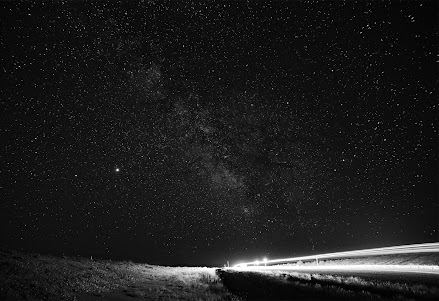Back on February 8th, I made fun of The Nation magazine for focusing its attention on space aliens. There are LOTS of things to be worried about, quite legitimately, and The Nation is generally focused on those issues - issues like wealth inequality, the threat of nuclear war, and the dangers of global warming. In an article published near the end of last December, though, The Nation debated whether or not space aliens are likely to be "socialists."
As just indicated, I thought it was quite proper to subject The Nation to some gentle satire, with respect to this particular inquiry. The political views and affiliations of space aliens (if they even exist) is not the kind of question that really deserves much attention, in my opinion. At least, not given the other things we have to worry about.
In January, I was surprised to find that another magazine to which I subscribe - and one that is quite highly regarded, and for good reason - has also made space aliens a topic of serious inquiry. The Sun magazine, which entered its 50th year of publication with its January 2023 issue, carried an article titled, "Out There: Seth Shostak On The Search For Extraterrestrial Intelligence." Shostak is the senior astronomer for the SETI Institute. "SETI," as you can probably guess, stands for "Search for Extraterrestrial Intelligence."
David Mahaffey, digital-media director for The Sun, interviewed Shostak, and here is how that interview began:
Mahaffey: I’ll start with the big one: Are we alone in the universe?
Shostak: It’s possible. We haven’t found any life, let alone intelligent life, beyond Earth. I mean, we haven’t found any yet. There are many, many planets. If it turns out that Earth is the only one with beings that run around and think about stuff, that would make us some sort of miracle, and I can’t bring myself to believe that. If the explanation for your scientific hypothesis is “It’s a miracle,” you’re not going to get published, and you shouldn’t.
You might look at a million solar systems and fail to find a signal, but that doesn’t prove they’re all sterile.
Mahaffey: So the scale of the universe makes it difficult to produce a definitive answer.
Shostak: Yes. One hundred years ago astronomers figured that the sun and the various planets orbiting it were close to the center of this one and only galaxy. But all that changed in the mid-1920s, when people like Edwin Hubble figured out that the little smudges on photos of the night sky are not objects in our galaxy at all; they’re other galaxies. It turned out that ours was just one of many. As of today we can see at least 200 billion galaxies. There are many more we can’t see because they are so far away that the light from them hasn’t yet reached us. In the Milky Way, our galaxy, there are 200 to 300 billion solar systems. And one out of every two or three has a planet the right distance from its star to have the kind of temperatures that you enjoy in North Carolina.
So far, says Shostak (and he ought to know), there is NO evidence of any other intelligible life in the universe. Still, Shostak postulates that there probably IS such life elsewhere. If there weren't, he says, that would be a "miracle."
And.... we can't have that, can we? How absurd! Miracles? What proof of those?
Well, let's look in the mirror, and notice that WE are the proof that miracles exist. Check out that famous picture of the Earth from space. We, alive on Earth - and Earth itself - are the miracle! If space aliens ever do show up, in flying saucers or otherwise - or if they are detected in some remote location, shown by our latest telescopes - then that will be the time to start believing that there is some other intelligible life in the universe. So far, we're it! In fact, the conclusion that "we're it" is the most logical and reasonable position to take.
Let me repeat what Star Trek actor William Shatner recently said, this statement having been recorded in an earlier edition of this blog:
“Last year, I had a life-changing experience at 90 years old. I went to space, after decades of playing an iconic science-fiction character who was exploring the universe. I thought I would experience a deep connection with the immensity around us, a deep call for endless exploration.
"I was absolutely wrong. The strongest feeling, that dominated everything else by far, was the deepest grief that I had ever experienced.
"I understood, in the clearest possible way, that we were living on a tiny oasis of life, surrounded by an immensity of death. I didn’t see infinite possibilities of worlds to explore, of adventures to have, or living creatures to connect with. I saw the deepest darkness I could have ever imagined, contrasting so starkly with the welcoming warmth of our nurturing home planet.
"This was an immensely powerful awakening for me. It filled me with sadness. I realized that we had spent decades, if not centuries, being obsessed with looking away, with looking outside. I did my share in popularizing the idea that space was the final frontier. But I had to get to space to understand that Earth is and will stay our only home. And that we have been ravaging it, relentlessly, making it uninhabitable" (emphasis added).
Space aliens have invaded our magazines. Let's not let them invade our understanding of exactly where we are, and who we are. Shatner, not Shostak, is trying to steer us in the right direction!


No comments:
Post a Comment
Thanks for your comment!